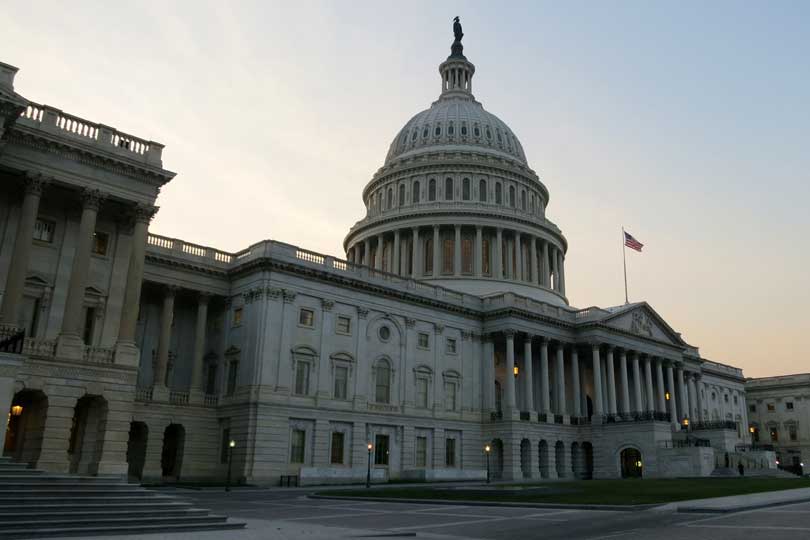By Landee Kieschnick
TFB Communications Intern
Legislative, regulatory and legal representation are keys for strengthening agricultural awareness and perspectives on state and national issues. Participating on the American Farm Bureau Federation’s (AFBF) Issues Advisory Committee allows Texas farmers and ranchers to do just that.
“Our members are world class farmers and ranchers,” Gene Richardson, Texas Farm Bureau (TFB) director of Commodity and Regulatory Activities, said. “Our members hold knowledge that they have learned through their experience in production and management that is vital for the process that AFBF is trying to accomplish.”
Members of the Issues Advisory Committee—which consists of 14 subcommittees each focused on a specific, high-profile agricultural topic—identify issues and discuss actions and possible solutions. The Issues Advisory Committee met Feb. 27-March 1 in Washington, D.C.
Each committee consists of Farm Bureau members with knowledge and direct involvement on particular issues of importance to U.S. farmers and ranchers, Richardson noted.
Those members, who were appointed by AFBF President Zippy Duvall, include nine TFB leaders.
As a member of the Agricultural Labor Committee, TFB District 5 State Director Mark Chamblee covers issues of guest worker programs, employment taxes and Occupational Safety and Health Administration regulations.
Jay Johnson, a Swisher County rancher, serves on the Animal Care Committee, which focuses on issues of standards in animal care and health, antibiotic use and commerce clause.
TFB District 8 State Director Neil Walter represents Texas on the Budget and Economy Committee, tackling issues like tax reforms and codes, appropriations, estate taxes for farmers and the Balanced Budget Amendment.
TFB District 2 State Director Dan Smith, a member of the Energy Committee, concentrates on renewable fuel standards, wind energy, fracking, pipelines and Corporate Average Fuel Economy standards.
The Environmental Regulations Committee covers issues pertaining to the Endangered Species Act, federal and state wildlife management, clean air and climate change. Williamson County farmer Bob Avant serves as a member of this committee.
Lubbock County farmer Bernie Thiel, a member of the Food Safety Committee, discusses certification standards, labeling acts, education and food safety and the Food Safety Modernization Act.
As a member of the Market Structures Committee, Wheeler County rancher Pat McDowell covers marketing and bargaining, checkoff programs, credit markets, commodity markets and futures and retail production standards.
The Public Infrastructure Committee focuses on agricultural transportation, the Federal Motor Carrier Safety Act, waterways and dams, highways, railroads, ports and ocean shipping. TFB District 10 State Director Ronnie Muennink is a member of this committee.
Dewey Hukill, a Lamb County farmer, represents Texas on the Technology Committee, which discusses data privacy and control, unmanned aircraft systems, biotechnology and other new breeding techniques and robotics precision agriculture.
TFB Vice President Michael White is a member of the Trade Committee, focusing on trade agreements and negotiations, sanitary and phytosanitary issues, trade promoting programs, non-tariff barriers to trade and enforcement of current agreements.
TFB District 11 State Director Bob Reed sits on the Water Committee and studies the Clean Water Act, along with national and regional water storage programs, flood control and Army Corps of Engineers water-related efforts.
Outcomes of the committees’ deliberations include advice and counsel to the AFBF board of directors on policy-related actions AFBF might be advised to take, recommendations for state Farm Bureau policy development and policy recommendations to the AFBF Resolutions Committee.
“These committees are a ‘think tank’ that advise the board based on their specific expertise,” Richardson said.
Committee members may also be asked to testify at congressional hearings with lawmakers and communicate with the media.
Each member will also participate in additional conference calls and webinars throughout the year to help Farm Bureau staff develop testimonies and write comments on proposed federal regulations.

